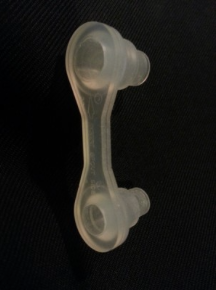"I don't know any other father that does what you do."
–My Mom
Shortly after the birth of our daughter my mother was utterly amazed that I cut the cord. When she (and most women of her generation) gave birth, men were not even permitted in the delivery room. Fathers-to-be paced the halls outside the waiting room until it was time to dole out cigars.
More and more women are sacrificing their social lives during their 20s and early 30s to continue their education and/or professional experience in lieu of settling down for a life like their mothers'. Today's ambitious women seem to be faced with a choice between the promise of a happy connected family or a powerful rewarding career. Positions of prestige once exclusive to young men who identify themselves and their worth by accomplishment and acquisition alone, are now within a woman’s reach as well...and the diving lines between the sexes are fading faster than a photo of Marty McFly before the Enchantment Under The Sea Dance.
Age-old gender roles, first popularized by our ancestral hunter-gatherers, are evolving. It is the Indian Summer of a modern era in which women not only bring unique skill-sets to the table but often higher EQs as well. With an aptitude for complex problem solving and technical ability equal to that of a man's; woman are collectively extending their reach for the golden rungs. The result? An increasing number of women today (40%) are earning larger salaries than their male counterparts and are more commonly finding their way into executive leadership roles.
Anne Marie Slaughter is a professor of Politics and International Affairs at Princeton University and formerly the Dean of the Woodrow Wilson School. She also served as Director of Policy & Planning for the State Department. I had never heard of her until coming across a piece she wrote in The Atlantic entitled: “Why Women Still Can’t Have it All”. The July/August issue of Princeton Alumni Weekly Magazine (AKA: PAW) featured her follow-up perspective which discusses the responses she received from fellow Princetonians entitled: ”You Can’t Have it All” Although the subject matter is regarding working women, a lot of it translates directly to stay-at-home dads whose life-altering decisions to be with their children is (contrary to what I’ve been reading) similarly dismissed both socially and professionally as a sign of weakness and lack of ambition.
The following excerpts are my favorites:
“…I have been consistently congratulated for making career choices that reflect great ambition, but often come at the expense of personal relationships…On the occasions that I do reveal the most important motivation behind my move, I am often met with subtle but noticeable eye rolls or worse, patronizing lectures…No more do I want to be unemployed than do I want to be the power woman who goes home after work to eat moo shu pork alone in her apartment. Why then should I be proud of investing in one goal, and be embarrassed of investing in the other?...Princeton taught me well how to succeed and how to value professional ambition. But after the cutthroat Ivy League environment, I am trying to teach myself to value relationships. Ironically, the only way I can do this is by looking at my relationships as a professional goal, the only thing I know how to attain.” -Cale Salih ‘10
“Few things rival the deep satisfaction of having a profession that you love and have mastered. But one of those few things is the joy of deep connection to those we love...so why should we look [only] to the professional as the principle yardstick of prestige?” -Nannerl Keohane: Former President of Duke and Wellesley
“As a society, as a university, we say we value family. But when women (or men) choose family over professional promotion, they very often are devalued…I certainly am not suggesting that we should devalue professional ambition. But people must have the option of pursuing a different but equally respected path where we see them as peers who are investing equally…” -Anne-Marie Slaughter ‘80

